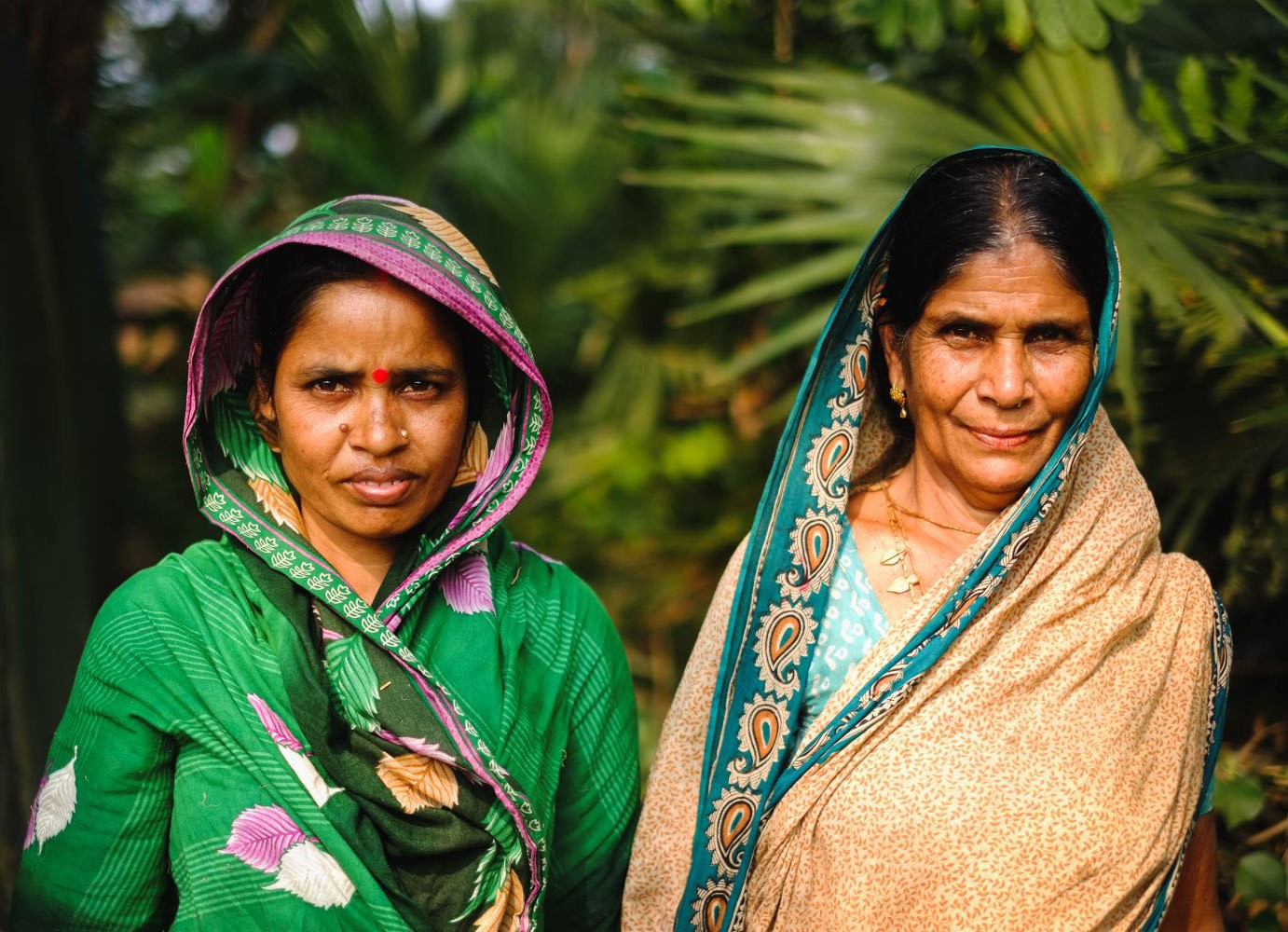Summary
To fully realize the potential of private investment for development impact and articulate commitments under the Progress Pledge, we propose a “grand bargain” between developing countries, donors, and private investors, with mutual commitments and reciprocal benefits.
Commitments:
- Developing countries: review and undertake reforms related to their governance and investment climates; promote open economic data and transparency; strengthen institutional accountability mechanisms; and protect civil society organizations.
- Donors: review and reform their regulatory environments to facilitate investment in developing economies; promote open economic data and transparency; offer more risk mitigation products; and use their key role as public mediating institutions to leverage private capital and advocate for investment climate reforms.
- Investors: establish up-front targets for emerging market and impact investing; adopt principles-based investment guidelines; and transparently track their portfolio commitments.
Implementation structures:
- Create World Bank–hosted Investment Climate Profiles, identifying country-level barriers to investment grounded in criteria already used by major investors.
- Develop a Global Investment Marketplace of projects and analytics, connecting investors with investment opportunities and due diligence information.
- Establish a regular forum for dialogue between the investment community and policymakers at the World Bank annual meetings.
Purpose
The promise of private investment mobilized for development is substantial. While international public financing is important, it represented only 2 percent of total development finance in 2010. International private flows represented 14 percent, and public and private resources from within developing countries made up 84 percent. [1] With a price for the Sustainable Development Goals estimated at about an additional $1 trillion annually for infrastructure alone, global rhetoric and the Third International Conference on Financing for Development (FfD) have appropriately highlighted the critical role of domestic resources and private international finance to meet this enormous capital demand. Private investors, including pension funds, sovereign wealth funds, and other institutional investors, hold trillions of dollars worldwide, and as Tomicah Tillemann of the New America Foundation has pointed out in his work launching the Progress Pledge, which this paper supplements, investment in development outcomes including good governance holds significant potential for private investors as well, reducing market volatility, expanding markets, and generating greater returns.
Investment in development outcomes including good governance holds significant potential for private investors.
Developing countries have accordingly increasingly called on donors and rich countries to support private investment, with the draft outcome document for the FfD conference noting the “transformative potential of people and private investment,” urging donors to “further develop instruments to channel the resources of long-term investors toward sustainable development sectors” and referring to the responsibilities of rich countries, private investors, and developing countries to facilitate and create the enabling environment for increased private financing. [2]
Translating global rhetoric, however, into actual leveraged private capital is not straightforward. Issues of regulation and governance in developing countries persist, often reinforced by domestic governing elites benefitting from market protections and other privileges that create reliable rents for them but high barriers to entry for new actors. Intrinsic market challenges such as natural monopolies and lengthy project preparation timelines make sectors like infrastructure and social impact high risk and highly complex to finance. [3] Without serious steps to develop strong incentives to address the fundamental barriers in countries’ investment climate—most of which are political, not technical — as well as information asymmetries and ongoing risk, this investment potential will remain largely untapped.
The Progress Pledge seeks a path to overcome these barriers, calling on leaders from government, the private sector, civil society, and international organizations to work together to channel greater private capital into developing countries committed to reform. [4] In this paper, we define the commitments and implementation of such a pledge — a “grand bargain” between country partners willing to take on the tough political work of tangibly reforming their investment and governance climates, investor partners willing to commit a portion of their portfolios for development impact and greater long-term gains, and donor partners willing to take mediating action to unlock the potential of private investment.
While the distinctions between commitments made by “developing countries,” “investors,” and “donors” are sometimes blurred, we broadly categorize the commitments needed from each type of partner. We also outline an implementation framework that can help overcome the persistent barriers outlined above, both by addressing technical barriers and through tools that can help alter the incentive structures for reform. The aim is to create a dynamic, partnership-driven system of reform and establish an efficient and sustainable platform for private investment in developing economies, with reciprocal global benefits.
Commitments for Developing-Country Partners
The US trails its rich-country peers in creating a robust mechanism for private investment in developing countries
- Developing-country partners should review and undertake reforms related to their governance and investment climates to align with conditions outlined in investment criteria identified by major institutional investors. These include criteria for political stability, transparency, labor practices, market regulation and liquidity, capital market openness, and transaction costs. [5] Meeting such criteria will not only open the door for higher levels of private capital flows but also benefit the citizens and economic health of nations as a whole.
- Developing countries should promote open economic data and transparency, signing on to the OECD Common Reporting Standard, the Extractive Industries Transparency Initiative, the Open Government Partnership, and the Open Contracting Data Standard (elaborated on below).
- Developing countries should take steps to strengthen institutional accountability mechanisms and protect and engage civil society organizations (CSOs). CSOs provide a layer of insulation against conflict, catastrophes, public health crises, and other shocks that underlie market volatility. [6] Protections include the freedoms of speech, association, assembly, and information.
Commitments for Donor Partners
- Donors should review and undertake reforms in their regulatory environments to facilitate greater impact investing in developing economies. Outstanding regulatory barriers for some donors, such as the United States, have been highlighted by the US National Advisory Board on Impact Investing, and proposed solutions include modernizing regulations on fiduciary duty and clarifying requirements around investments by philanthropic foundations. [7]
-
Donors should lead by example to promote open economic data and transparency surrounding investment contracts and practices in order to ensure that foreign investment is fair and sustainable, including:
- Implementing multilateral automatic information exchange (through the OECD Common Reporting Standard) and public registries of beneficial ownership of companies, foundations, and trusts. These actions protect tax revenues and combat money laundering, corruption, and security threats funded by hidden financial flows. [8]
- Supporting the Extractive Industries Transparency Initiative (EITI) [9] and enacting domestic reporting requirements (such as Section 1504 of the Dodd-Frank Act) to curb corrupt practices and help developing countries use and manage natural resources and their rents effectively.
- Publishing the contracts they enter into with private firms through the Open Contracting Data Standard and the Open Government Partnership. [10] These actions can increase public trust, efficiency, and competition.
- Publishing all aid contributions through the International Aid Transparency Initiative (IATI) Standard, enabling developing countries to track aid flows more effectively and citizens within those countries to hold their governments accountable for resources. [11]
-
Donors should help reduce risk and volatility associated with investing in developing economies by offering more and more-streamlined risk mitigation products, including:
- For the United States, consolidating and modernizing risk mitigation authorities under one new institution, the US Development Finance Corporation. [12] The United States lags behind its rich-country peers in creating a robust mechanism to facilitate private investment in developing countries. The current range of tools — partial-credit guarantees, feasibility studies, and technical assistance—stretches across several agencies, and the tools are both insufficient in size and highly uncoordinated, making it difficult for investors to navigate the landscape of options. Despite some improvements, including an FY2016 budget request increase for credit subsidies to support more than $3.6 billion in added loans, insurance, and guarantees, gaps remain.
- Signing new regional or bilateral investment treaties, a low-cost way to promote reform and provide foreign investors with core protections against political risk and uncertain business environments. [13] Such treaties should be fair and equitable for developing countries, drawing from guidelines such as the UNCTAD Investment Policy Framework for Sustainable Development. [14]
- Establishing funds and facilities for innovative products, such as Development Impact Bonds, an outcome-based flexible financing model currently being piloted by the United Kingdom in Uganda, [15] or a first-loss capital fund, experimented with on a domestic scale in the United States and other countries but with important implications for global social impact. [16]
- Donors should better utilize their key role as public mediating institutions to leverage private capital and advocate for the investment climate reforms that can help mobilize private investment. Private investors are constrained by conflicts of interest in pressing for such reforms, especially with respect to specific investment opportunities. But there are increasing instances of public institutions leveraging private capital to both vastly amplify the impact of public investments and strengthen incentives for investment climate reforms. The Millennium Challenge Corporation’s (MCC’s) $498.2 million Second Compact with Ghana, focused on the power sector, is a prime example. Private-sector partners have committed to an additional $4.6 billion in investment should the government of Ghana follow through on reforms negotiated within the MCC compact. Donors should commit to making such leveraging routine, by tracking the number of projects that include co-investment with the private sector and the amount of private-sector funds leveraged, and committing to increase both by 10 percent annually .
Commitments for Investor Partners
- Investors participating in the grand bargain framework should establish up-front targets for emerging market and impact investing, either in portfolio percentage or dollar amounts, to be allocated to impact-driven projects in developing partner countries. These can include traditional private-sector investments, social impact investments, or support to nongovernmental organizations typically funded through corporate social responsibility efforts.
- Investor partners should adopt principles-based investment guidelines (such as the CalPERS principles) that would more readily include investments with sound environmental, social, and governance conditions, and especially within developing markets.
- Investor partners should commit to a transparent tracking of their portfolio commitments for investment for development to encourage accountability and public trust.
Implementation Structures
A. Creating country Investment Climate Profiles
While there has been long-standing focus on the broader business environment in developing countries, there is limited information on the environment for private investment, especially for infrastructure. The existing international business surveys, the World Bank’s enterprise surveys and Doing Business reports, primarily focus on manufacturing and service industry firms and related regulations, and largely adopt the perspective of domestic entrepreneurs, not foreign investors.
The World Bank, building on the successful precedent of the Doing Business reviews and working in collaboration with regional Multilateral Development Banks (MDBs), should introduce a new knowledge product aimed at identifying country-level barriers to investment, with a strong focus on infrastructure. [17] Countries will work with the World Bank to review their investment climate based on indicators and investment criteria critical to foreign and institutional investors. These assessments would be presented in Investment Climate Profiles, hosted by the World Bank. The profiles would serve the dual purpose of informing governments about actions they may need to take to spur investment and providing valuable information to potential investors about the quality of country investment climates.
B. Connecting investors and investment opportunities
To widen the pipeline of impact investment and address persistent information asymmetries, a public–private consortium (including technical developers, public institutions, and independent organizations) should create and host a Global Investment Marketplace of projects with development impact and profit potential in need of private investment. This marketplace would offer analytics on investment opportunities within developing partner countries to diminish the information gap for investors and streamline due diligence processes. It should be organized into multiple branches, potentially divided by sector (infrastructure versus social impact, for example), and be responsive to demand from investor partners and the needs of developing countries.
Such a marketplace would build on and consolidate efforts by independent networks, project preparation facilities, and new multilateral hubs, such as the G20’s Global Infrastructure Hub, the Global Infrastructure Facility at the World Bank, and the Global Finance Exchange, [18] to connect projects and potential investors, share expertise, and create new knowledge. The Global Investment Marketplace would cross-list projects across independent efforts.
The transparency and freedoms called for incentivize reform, empowering citizens to hold governments accountable
C. Convening a forum for the investment community
More regular and routine opportunities are needed for donor countries, partner countries, and the private sector to discuss opportunities and challenges for private investment, on both a policy and project level. [19] The World Bank should host a dedicated forum at the annual meetings focused on private investment for development, drawing on the new Investment Climate Profiles. Importantly, this forum should expressly include agents from across the investment community, particularly underrepresented investors such as pension funds. This open and working-level dialogue would help potential investors become familiar with impact opportunities in developing countries and inform policymakers of the policy obstacles investors identify for involvement.
Reciprocal Incentives
Fundamentally, the model of a grand bargain succeeds only when there are the mutual incentives to act for all partners involved. In this case, the tremendous gap in financing for development and clear recognition that domestic resources and private investment present the greatest opportunities for closing the gap provide powerful incentives for developing countries to reform their investment climates. The information transparency and fundamental freedoms called for here create space for additional incentives for reform, empowering citizens and civil society groups to hold governments and investors accountable. For investors, stable emerging markets on a solid development trajectory hold great promise for robust growth and returns, and the expertise, risk mitigation, and project preparation support proposed here open new sources of capital and make existing ones easier to access. Relevant analytics on projects and countries decrease the cost of due diligence, and pooled information about investment opportunities offers a broader range of impact investment opportunities while also helping to meet goals for corporate social responsibility. Finally, traditional donors (both bilateral and multilateral) gain additional tools to support country reform and development efforts, promote better returns for their own investment communities, and reinvigorate the leadership role for donors and public institutions in development finance.
For further inquiries, please contact:
Nazanin Ash, nash@cgdev.org
Beth Schwanke, bschwanke@cgdev.org
Acknowledgments
This paper builds on the work and proposals of the Bretton Woods II Progress Pledge Working Group, led by Tomicah Tillemann of the New America Foundation and including the Center for Global Development, the Aspen Institute, and the Global Development Incubator. More information about the Progress Pledge can be found at https://www.newamerica.org/bretton-woods-ii/. CGD in grateful to its funders and board of directors for support of this work.
[1] OECD, Development Co-operation Report 2014: Mobilising Resources for Sustainable Development (Paris: OECD Publishing, 2014).
[2] United Nations, revised draft “Outcome Document” for the Third International Conference on Financing for Development, May 2015.
[3] Charles Kenny, “Finding Cash for Infrastructure in Addis: Blending, Lending, and Guarantees in Finance for Development,” Center for Global Development, forthcoming.
[4] Bretton Woods II: The Progress Pledge, https://www.newamerica.org/bretton-woods-ii/.
[5] For example, the CalPERS Emerging Equity Markets Principles is an internal policy guide developed for fund managers at the California Public Employees’ Retirement System (CalPERS), one of the world’s largest pension funds, “to control risk and enhance return, and to improve practices in emerging markets.”
[6] For an expanded proposal on supporting CSOs and social impact through private investment, see the Bretton Woods II Progress Pledge, https://www.newamerica.org/bretton-woods-ii/.
[7] US National Advisory Board on Impact Investing, Private Capital, Public Good: How Smart Federal Policy Can Galvanize Impact Investing—And Why It’s Urgent, June 2014.
[8] Owen Barder, “Promoting the Development Power of Economic Transparency,” Center for Global Development, forthcoming.
[9] EITI, https://eiti.org/.
[10] Charles Kenny, “How to Publish Your Government Contracts,” Center for Global Development blog post, November 19, 2014.
[11] IATI Standard, http://www.aidtransparency.net/about.
[12] Todd Moss and Ben Leo, Bringing US Development Finance into the 21st Century: Proposal for a Self-Sustaining, Full-Service USDFC, Center for Global Development, March 2015.
[13] Ben Leo, “Is the US Ready to Compete in Africa? Recommendations for Modernizing US Economic Policy Tools,” testimony before the Senate Foreign Relations Committee Subcommittee on Africa and Global Health Policy, March 19, 2015.
[14] United Nations Conference on Trade and Development, Investment Policy Framework for Sustainable Development, June 2012.
[15] See the CGD/Social Finance Development Impact Bond Working Group report Investing in Social Outcomes: Development Impact Bonds, http://international.cgdev.org/sites/default/files/investing-in-social-outcomes-development-impact-bonds.pdf , and the G8 Social Impact Investment Taskforce subject paper International Development, http://www.socialimpactinvestment.org/reports/International%20Development%20WG%20paper%20FINAL.pdf .
[16] Global Impact Investing Network, Catalytic First-Loss Capital, issue brief, October 2013.
[17] For more details on a version of this proposal, see the CGD study group note “Five New Deliverables for the G20’s Infrastructure Agenda,” /sites/default/files/Five-New-Deliverables-G20.pdf .
[18] The Global Finance Exchange “will provide financial and technical support for earlier-stage investment opportunities, a marketplace for investment-ready deals, and complementary tools” for blended finance (public and private capital) opportunities. For more information, see http://www.globaldevincubator.org/initiative-incubator/current-initiatives/ .
[19] One good, although more narrowly focused, existing example is the annual Global Private Equity Conference, hosted by the International Finance Corporation and the Emerging Markets Private Equity Association. The World Bank could expand this model to a broader forum for private investors in all developing markets.
Rights & Permissions
You may use and disseminate CGD’s publications under these conditions.





